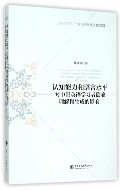Chapter 1 General Introduction
1.1 Introduction
1.2 Need for the study
1.3 The theoretical framework: A caveat
1.4 Purposes of this research
1.5 Terminological issues
1.5.1 Conceptualization of cognitive ability
1.5.2 Conceptualization of language proficiency
1.6 The organization of the book
Chapter 2 A Theoretical Framework for This Study
2.1 Introduction
2.2 The classical theory of metaphor
2.3 The contemporary theory of metaphor
2.3.1 Introduction to cognitive linguistics
2.3.2 Relationship of cognition and metaphor
in cognitive linguistics
2.3.3 Metaphor: A contemporary view
2.3.4 Conceptual vs. linguistic metaphors
2.4 A critical analysis of the classical theory of
metaphor
2.4.1 Introduction
2.4.2 The classical theory of metaphor:
A cognitive perspective
2.4.3 Basic differences between the classical and the
contemporary metaphor theory
2.4.4 Possible reasons for the misunderstanding of
the classical theory of metaphor
2.5 A brief conclusion
2.6 Significance. An applied linguistic perspective
Chapter 3 A Literature Review of the Relevant Research
3.1 Introduction
3.2 Metaphoric competence
3.3 Factors influencing metaphor comprehension and
production
3.3.1 Introduction
3.3.2 Cognitive ability, language proficiency and
metaphor comprehension
3.3.3 Cognitive ability, language proficiency and
metaphor production
3.3.4 Basic issues in metaphor production research
3.4 Limitations of the previous research
3.5 A brief summary
Chapter 4 Experiment Design and Data Collection
4.1 Introduction
4.2 Methods and data collection
4.2.1 Subjects
4.2.2 Materials for the tests
4.2.3 Testing Procedures
4.2.4 Scoring
Chapter 5 Results and Discussions
5.1 Introduction
5.2 Question 1
5.2.1 Data and analyses
5.2.2 Summary and discussion
5.3 Question 2
5.3.1 Data and analyses
5.3.2 Metaphor comprehension and production performances
of the subjects divided by cognition
5.3.3 Metaphor comprehension and production performances
of the subjects divided by language proficiency
5.3.4 A general summary and discussion
5.4 Question 3
5.4.1 Data and data analyses
5.4.2 Summary and discussion
5.5 Question 4
5.5.1 Data and data analyses
5.5.2 Summary and discussion
Chapter 6 Conclusion, Implication and Limitation
6.1 Introduction
6.2 Major findings of the study
6.3 Implications
6.3.1 Theoretical implications
6.3.2 Pedagogical implications
6.3.3 Methodological implications
6.3.4 Limitations
6.3.5 Suggestions for future research
Appendixes
Bibliography

 缺书网
缺书网 扫码进群
扫码进群





